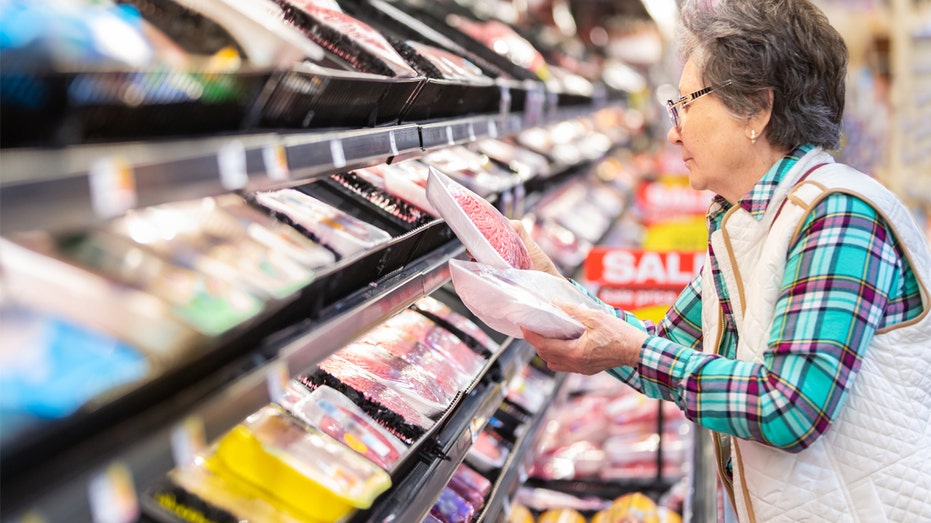Meat prices could soar even more due to drought
California rancher on drought’s impact on herd, meat prices
Diamond W Cattle Company owner Mike Williams says he has about a third of the cattle he normally has on the ranch due to the drought and notes that ‘the total number of cattle in the United States is reduced quite significantly.’
A California rancher noted on Thursday that the number of cattle in the United States has been reduced "quite significantly" as Americans have already been facing higher prices for meat.
Diamond W Cattle Company owner Mike Williams discussed inflation and the drought's impact on his herd and others during a live interview on "Cavuto: Coast to Coast" Thursday.
Williams told FOX Business’ Kelly O'Grady he used to have 600 cattle on his ranch but now that number is down to 200 amid the drought and soaring inflation.
"We’re running about a third of the cattle we normally run on this ranch," Williams said, noting that it has been "a several-year process."
"We’ve been dry here in California for several years now," he continued.
He also noted that there are "ranchers all over the United States that have had to do similar things and their options are so limited because of the cost of feed and fuel." Williams explained that, therefore, some ranchers have been "reducing or liquidating herds," which "is pretty common right now."
Less supply of meat leads to higher prices at the grocery store at a time when inflation is already impacting Americans. (iStock) Less supply often leads to higher prices at the grocery store. O’Grady reported that Williams said that high beef prices at the grocery store doesn’t equate to profits for ranchers who are faced with higher input costs and that for prices to come down, the drought has to subside. Inflation eases as July CPI drops to 8.5 percent. FOX Business’ Cheryl Casone discusses the latest. Williams provided the insight on "Cavuto: Coast to Coast" one day after the Labor Department said that the consumer price index, a broad measure of the price for everyday goods including gasoline, groceries and rents, rose 8.5% in July from a year ago, below the 9.1% year-over-year surge recorded in June. Prices were unchanged in the one-month period from June. Those figures were both lower than the 8.7% headline figure and 0.2% monthly gain forecast by Refinitiv economists. There was some real reprieve for U.S. households last month in the form of lower energy prices, which contributed to the decline in headline inflation. The cost of energy fell 4.6% in July from the previous month, though it remains 32.9% higher than just one year ago, while gasoline prices fell 7.7% in July. They remain up 44.9% from last year. Karns Foods CEO Scott Karns warns he doesn’t see food prices deflating due to multiple market disruptions. However, other price increases were extensive in July with inflation remaining stubbornly high. The food index climbed 1.1%, putting the 12-month increase at 10.9%, the highest since May 1979. Consumers paid more for items like cereal, chicken, milk and fresh vegetables. The price of meat soared 7.2% in July compared to the same time last year and increased .4% from the month before. O’Grady reported that weather conditions could be impacting prices even more as farmers are experiencing "some of worst conditions ever" because of the drought and the fact that the ground is not fit for grazing. CLICK HERE TO READ MORE ON FOX BUSINESS She also reported that ranchers have been culling their herds "because it’s more economical than feeding them," and fewer calves translates to less meat in years to come. According to the USDA, declines in beef production are expected this year and next. Source: Read Full Article
Inflation cools in July as headline figure drops to 8.5%

Karns Foods CEO: ‘Acceleration coming’ to food, grocery inflation

